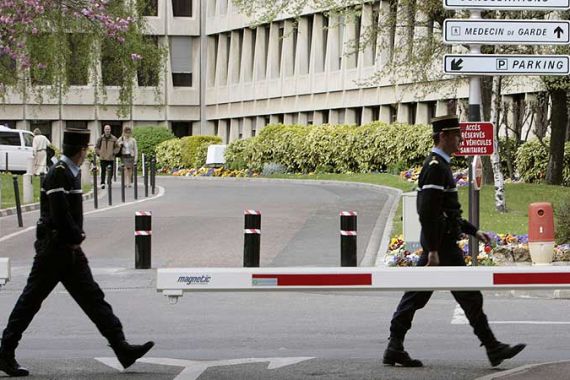Algerian leader flown to Paris after stroke
State media report says 76-year-old President Abdelaziz Bouteflika undergoing check-up after suffering minor stroke.

Abdelaziz Bouteflika, Algeria’s president, has been taken to France for examinations after a minor stroke but is not experiencing any lasting effects, according to a state media report.
Bouteflika, 76, was taken to Paris for “further tests under the recommendation of his doctor”, APS news agency said on Saturday citing a medical source who said the president’s condition was stable.
Bouteflika had a brief blockage of a blood vessel – called a transient ischaemic attack (TIA) – around noon, Rachid Bougherbal, director of the National Centre of Sports Medicine, told APS earlier.
“His excellency the president of the republic must observe a period of rest for further examinations,” Bougherbal said, adding that “there was no reason for worry”.
APS said Bouteflika had the TIA, or mini-stroke, at 12:30pm (11:30 GMT) on Saturday.
According to the American Stroke Association, a TIA is caused by a temporary blood clot and lasts just a short time and “usually causes no permanent injury to the brain”.
However, a third of those suffering from TIA, also known as “warning strokes”, go on to have a full stroke within the next year, according to website of the association.
Three-term president
Elected in 1999, Bouteflika is a member of a generation of leaders who have ruled Algeria since winning independence from France in a 1954-62 war.
They also defeated religiously conservative armed groups in the 1990s and saw off the challenge of Arab Spring protests two years ago, with Bouteflika’s government defusing unrest through pay rises and free loans for young people.
Bouteflika has served three terms as president and is thought unlikely to seek a fourth at an election due in 2014.
Elected president in 1999 and re-elected in 2004 and 2009, Bouteflika had a previous health scare in 2005, when he underwent surgery in Paris for a bleeding ulcer.
Leaked US diplomatic cables said in 2011 that Bouteflika had been suffering from cancer, but that it was in remission.
It is unknown who might take over Africa’s biggest country, an OPEC oil producer which supplies a fifth of Europe’s gas imports and co-operates with the West in combating the rise of religious extremism.
Impatient with gerontocracy
More than 70 percent of Algerians are aged under 30.
About 21 percent of young people are unemployed, the International Monetary Fund says, and many are impatient with the gerontocracy ruling a country where jobs, wages and housing are urgent concerns.
The health of Bouteflika is a central factor in the stability of the North Africa nation of 37 million people that is emerging from a long conflict against armed Muslim fighters.
On January 16, a band of al-Qaeda-linked fighters attacked Algeria’s in Amenas gas plant and took dozens of foreign workers hostage.
After a four-day standoff, the army moved in and killed 29 attackers and captured three others.
At least 37 hostages, including one Algerian worker, died in the battle.